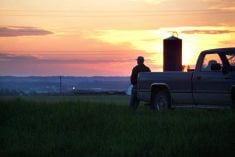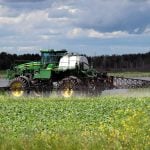Farming can be overwhelming during peak seasons. A never-ending job list means you’re overloaded — which means your team is probably already operating at maximum capacity as well, so delegating isn’t an option.
What can you do?
Kelly Dobson, executive coach and fourth-generation Fairfax, Man., farmer says a common complaint from his clients is that they are working as hard as they can and that their teams are putting their hearts and souls into it, but it isn’t enough.
Read Also

The big squeeze: How to be fair to siblings during farm succession
Managing sibling business relationships on family farms.
They’re burning out.
Being understaffed is a chronic problem in agriculture, says Dobson, citing two main reasons. First, historically, there has been an unrealistic expectation of how much an individual can accomplish in a day, a week, a month or a season. Secondly, as the need has shifted from low-skilled to high-skilled labour in recent years there is an ongoing shortage of qualified help.
Unfortunately, when managers and employees are overworked, they are unable to be decisive or to think and act strategically, says Dobson. “The data shows working 60 hours or more per week impairs your mental abilities as much as being drunk. Then people wonder why mistakes are made or why they are not focusing on the jobs with the highest impact.”
Terry Betker, CEO of Backswath Management Consultants in Winnipeg, Man., sees farmers spending too much of their time working in their management function, focusing on the near-term (the next six months) and not enough time on the short-term (three to five years) or longer. “They would benefit if they could extend that horizon,” he says. “A lot of farmers have a lot of structure around the operational pieces but don’t have as much structure around long-term management.”
He says that looking further into the future to identify the end-state they want to achieve will help them make better decisions today.
Sara Chambers, an HR consultant who works with Betker at Backswath Management Consultants, agrees. She says that if farmers are feeling overwhelmed, the best place to start is to zoom out to the big picture. Once they figure out what they want their end-state to look like, they can work backwards to figure out what they need to do to get there.
“It’s really important for farmers to look at what they’re delegating and ask themselves ‘Are those things that I’m delegating going to help me get there?’”
“I’ve yet to meet someone who doesn’t have room to delegate better and more,” agrees Dobson, who has also seen the difference zooming out can make. “Being outcome-oriented creates a whopping difference in effectiveness,” he says, resulting in improvements in both individual mental health and the farm’s bottom line.
Chambers recommends farmers ask themselves what they are managing towards. Is it to be less busy? A different farm size? A certain financial position? Setting the farm up so the next generation can be successful? What will it look like when they have arrived at their goal?
Delegating the right tasks
What farmers have chosen to delegate is sometimes based on a knee-jerk reaction, explains Chambers. Without doing any strategic planning, farmers may not be delegating the right things. They may be delegating the things they don’t want to do or the things they think are a quick fix. “Those quick fixes tend to get farmers on a hamster wheel … that they can never get out of,” she says.
Once you’ve prioritized what you want to delegate, Chambers says, “You need to have the right systems and procedures to build out those roles to communicate what’s expected.” This requires building out job descriptions, organizational charts and employee manuals so that everyone understands their roles, expectations and accountability. The result is that “everyone is swimming in the same direction towards the desired end-state.”
If it’s not possible to hire additional staff, Chambers says it may be possible for current staff to take on additional responsibilities. Once you set your priorities, she says farmers may find that there are existing team members who are willing to take on more responsibilities for a pay increase. The increased responsibility may even result in stronger ties with these employees, who may also choose to stay longer as a result.
However, she emphasizes that it’s important to include training plans for employees taking on additional responsibilities.
Betker suggests enlisting the help of a farm management consultant to complete a management assessment and to ensure the plan is implemented. Ongoing conversations between farmer and consultant can identify what’s working, what’s not and how to make appropriate changes. “Otherwise, it’s human nature to revert back to old practices,” he says.
Kim Gerencser, a financial planner and president of Growing Farm Profits in Regina, Sask., says that operating a modern farm is not what it was a generation or two ago and no one person has all the necessary knowledge — or can do it all.
He sees significant potential with artificial intelligence (AI) tools for improvements to how farms operate.
“There is potential for AI to fill a gap … to help create and standardize operating procedures, to record and store them as video, audio or text so that there is less time spent on training, supervising, observing and correcting repetitive tasks, especially in large operations where several people do the same work in multiple locations.”
No quick fixes
Determining what you want the end goal to be and then working backwards to achieve it is not a quick fix, but farmers could see significant progress in a year’s time, says Chambers. “It may involve some short-term suffering to get there but if you know, you can plan for it.”
Dobson agrees it’s not a quick fix but in time he finds people are amazed at what they can accomplish once they get out of problem-solving mode and build towards the outcome they want instead. “When they are hyper-selective about where they put their attention, they can be hyper-productive and hyper-efficient.”
If you’re too busy to get started on this process now, Chambers suggests putting a note in your phone to remind you during a slower season.
















